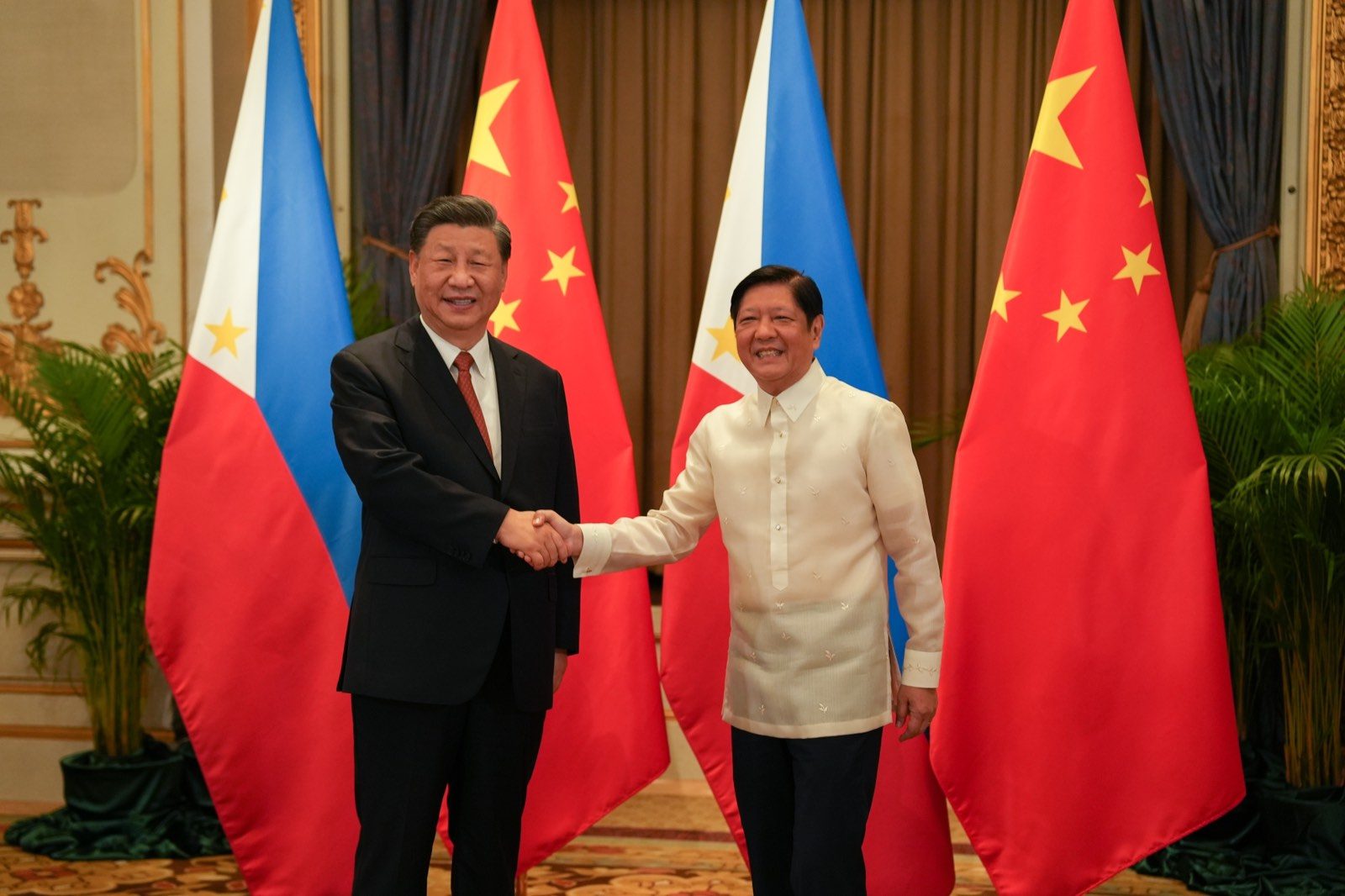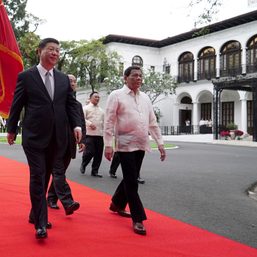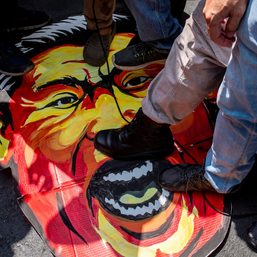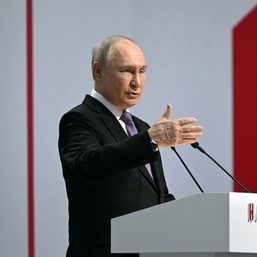SUMMARY
This is AI generated summarization, which may have errors. For context, always refer to the full article.

BANGKOK, Thailand – During what Malacañang called a “historic” bilateral meeting, Philippine President Ferdinand Marcos, Jr. and Chinese President Xi Jinping talked about a gamut of issues – including the South China Sea.
Marcos and Xi met late Thursday afternoon, November 17, on the sidelines of the Asia-Pacific Economic Cooperation (APEC) Summit in Bangkok.
In a statement hours after the one-on-one meeting, the Chinese Ministry of Foreign Affairs said “the two sides must stick to friendly consultation and handle differences and disputes properly.”
The Philippines’ Department of Foreign Affairs (DFA), in a statement sent almost 12 hours after the meeting, said “the two leaders agreed that maritime issues do not define the totality of Philippines-China relations.” Marcos himself has said as much in the past.
China’s statement added that the two countries should “work together to reject unilateralism and acts of bullying, defend fairness and justice, and safeguard peace and stability in the region.”
China did not specify the “acts of bullying” but it has repeatedly called the United States a bully. China, however, itself is accused of bullying in the South China Sea.
During the bilateral meeting, the Philippine government said the two countries “reaffirmed their support for the early conclusion of a Code of Conduct on the South China Sea to help manage differences and regional tensions,” referring to the code that has yet to be agreed upon 20 years after the Association of Southeast Asian Nations (ASEAN) and China agreed on its creation.
‘Cold war mindset’
The bilateral talks between Marcos and Xi, and China’s participation at regional meets come amid increasing competition between the regional giant and the United States.
The Philippine President, just days ago, attended the ASEAN Summit in Phnom Penh while Xi flew in from Bali, Indonesia, where he attended the G20 summit.
Xi, in a written statement for an APEC business summit, warned against Asia-Pacific turning into an “an arena for big power contest.”
“No attempt to wage a new cold war will ever be allowed by the people or by our times,” Xi said.
Marcos’ statement at the bilateral meeting echoed Xi’s earlier message. “Our foreign policy refuses to fall into the trap of a Cold War mindset. Ours is an independent foreign policy guided by our national interest and commitment to peace,” said Marcos, according to the DFA.
This was Marcos and Xi’s first time to meet as heads of state.
Malacañang – through a news release and a recorded interview with Marcos – said the two leaders spoke about “regional issues” and “agriculture, energy, infrastructure and people-to-people connections.”
China’s foreign ministry said in a statement that Xi agreed to “import more quality agricultural and sideline products from the Philippines.”
“The Philippines is ready to engage in active consultations with China and find ways to advance the joint exploration of maritime oil and gas resources,” it also said.
Marcos said they “mostly” talked about his upcoming state visit to China in early January 2023 – his first state visit outside of Southeast Asia.
Topics during bilateral meetings – particularly those between the highest officials of a country – are normally decided upon even before two leaders shake hands.
Marcos earlier said he “hoped” to talk to Xi about disputes in the West Philippine Sea or the South China Sea.
Marcos’ meeting with Xi happens in the new Philippine president’s first few months in office – a crucial time in creating a good first impression on the international community.
Philippine and China relations went through ups and downs in the past three administrations. Links were thriving during the Gloria Macapagal Arroyo administration, icy under the late Benigno Aquino III, and again growing under Marcos’ immediate predecessor, Rodrigo Duterte. Aquino is remembered as the Philippine leader who brought China to court over the West Philippine Sea.
Marcos seems committed to his “friend to all and enemy to none” foreign policy. He has affirmed – very overtly – his belief that US-Philippine relations will and should be strengthened.
But he has also sought to improve ties with China. Arroyo, whom China Foreign Minister Wang Yi has called “an old and good friend of the Chinese people,” was part of the Philippine panel in the bilateral meeting. – Rappler.com
Add a comment
How does this make you feel?





![[In This Economy] Marcos’ POGO ban is popular, but will it work?](https://www.rappler.com/tachyon/2024/07/thought-leaders-marcos-pogo-ban.jpg?resize=257%2C257&crop=255px%2C0px%2C720px%2C720px)
![[Rappler Investigates] POGOs no-go as Typhoon Carina exits](https://www.rappler.com/tachyon/2024/07/newsletter-graphics-carina-pogo.jpg?resize=257%2C257&crop=424px%2C0px%2C1080px%2C1080px)



![[Vantage Point] China’s silent invasion of the Philippines](https://www.rappler.com/tachyon/2024/07/TL-china-silent-invasion-july-16-2024.jpg?resize=257%2C257&crop=318px%2C0px%2C720px%2C720px)




There are no comments yet. Add your comment to start the conversation.